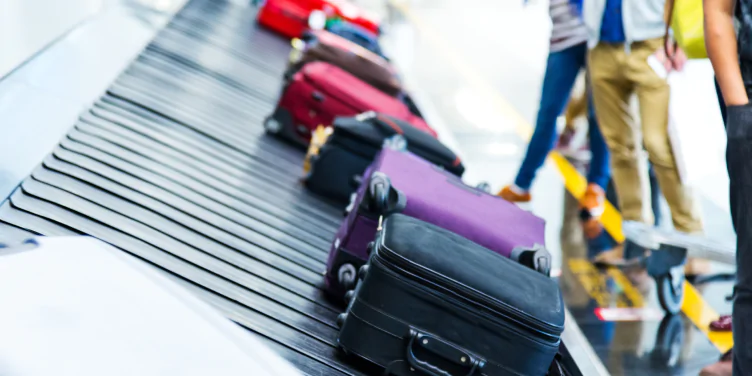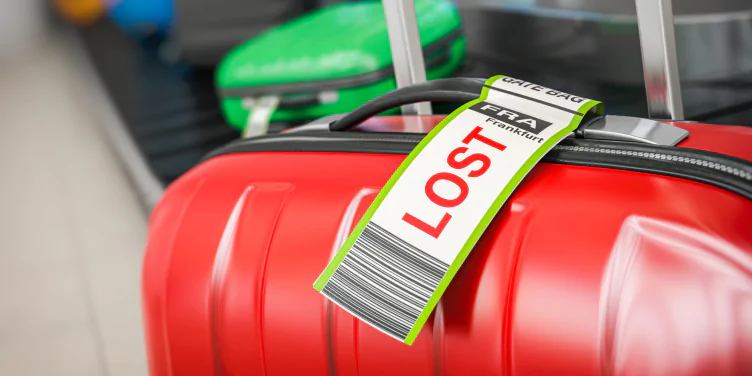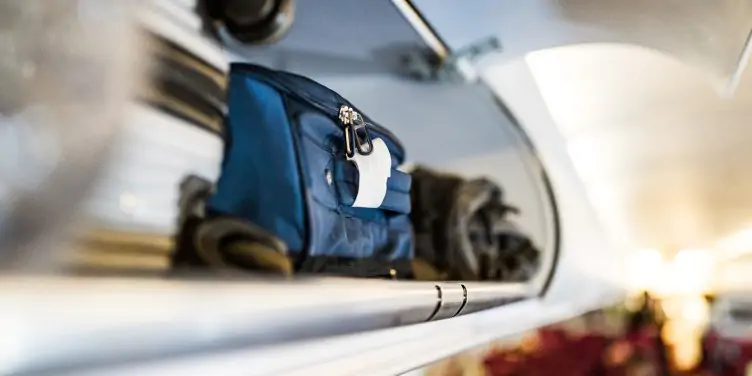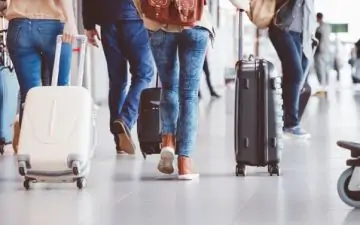What to do if your airline loses your luggage

It’s a holiday nightmare that we all dread: waiting at the baggage carousel for luggage that either doesn’t arrive, or turns up damaged. But when your luggage goes missing, who’s responsible for finding it? And are you entitled to any compensation for loss or damage? Ahead of the busy summer holidays, we explain what to do if your bag is lost by an airline.
What should I do if my luggage is lost by my airline?
What should I do if my luggage is damaged?
Can I get compensation for delayed, lost or damaged luggage?
How can I avoid baggage disasters in the future?
What should I do if my luggage is lost by my airline?
If you find yourself stuck in a new destination without your suitcase, your airline is responsible for helping you to find it. As soon as you realise your luggage is missing, head to the airline’s baggage desk. You’ll usually find this in the baggage claims hall.
You’ll need to fill out a Property Irregularity Report (PIR) to report your delayed or lost luggage. Describe your bag and where you’re staying so they can get it back to you. Don’t leave the airport without this report; it helps you stay updated on your bag’s status and serves as proof for any claims.
Typically, lost bags tend to make their way back within a couple of days. According to the Civil Aviation Authority, your airline will identify your luggage as ‘delayed’ once 21 days have passed. If it hasn’t shown up by then, they’ll label it as ‘lost’.
What should I do if my luggage is damaged?
If your luggage gets damaged upon arrival, head to the airline’s baggage claim desk and fill out a Property Irregularity Report (PIR). Make sure to ask for a copy of this report, keep the luggage tags, your boarding pass, and take photos of the damage. Civil Aviation Authority guidelines state that to claim compensation, you’ll need to reach out to your airline within seven days of your flight.
Can I get compensation for delayed, lost or damaged luggage?
The compensation process for delayed, lost, or damaged luggage can be a bit tricky.
When your luggage is delayed, airlines typically cover basic expenses like toiletries, fresh underwear and essentials while you wait for your lost luggage to arrive. According to the Civil Aviation Authority, to claim these costs back, you’ll need to send the airline your receipts and PIR report within 21 days of the flight. Your airline should contact you to let you know if your luggage hasn’t been found after 21 days. You can then make a claim for compensation of your lost luggage. When baggage is delayed, lost or damaged by the airline, they may be liable for damages under the 1999 Montreal Convention. But, as of March 2024, passengers can only claim back up to £1,359 worth of lost luggage (US$1,728). That’s why having travel insurance is important if your valuables are likely to be worth more than this.
How can I avoid baggage disasters in the future?
While you can’t always control if your luggage gets lost or damaged on future trips, there are steps you can take to steer clear of mishaps. Read our top tips below:
1. Make sure that you have a good travel insurance policy in place
Take out a policy as soon as you book your trip. Check that it includes baggage cover and that it’ll cover the value of your belongings, just in case something doesn’t go to plan.
2. Keep any valuables with you
Carry important, irreplaceable, or sentimental items in your hand luggage. It’s the best way to prevent losing or damaging your values during your journey.
3. Add contact details to your luggage
Before you drop off your luggage at the check-in desk, remember to attach your name and phone number to each bag. This simple step can help speed up the process of reuniting you with any lost baggage.
4. Travel with hand luggage
Planning a brief getaway? Think about travelling with hand luggage. Not only does this lower the chances of lost or damaged belongings, but it also means no waiting around when you land!
5. Make your luggage easy to spot
Add a colourful ribbon, strap, or stickers. This helps avoid mix-ups and speeds up identification if it does go missing.












